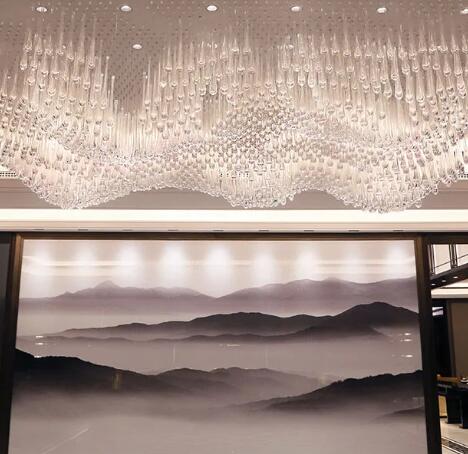Illuminating Elegance: A Brief History of the Crystal Chandelier
The crystal chandelier, a symbol of opulence and grandeur, has graced palaces, mansions, and ballrooms for centuries. Evoking a sense of timeless beauty, these dazzling fixtures have a rich history that spans across cultures and epochs. In this article, we will take a journey through time to explore the origins and evolution of the crystal chandelier.
The Origins: 17th Century Europe
The genesis of the crystal chandelier can be traced back to 17th century Europe, particularly in regions like England and France. Initially, chandeliers were simple structures with wooden frames supporting candles. The introduction of leaded glass prisms added a touch of brilliance, refracting and reflecting candlelight to create a stunning display.
The Baroque Era: 17th to 18th Century
The Baroque era witnessed the flourishing of crystal chandeliers as symbols of wealth and prestige. Intricate metalwork, adorned with crystals and glass, became characteristic of this period. Chandeliers adorned the halls of royal palaces and grand estates, captivating onlookers with their extravagant designs and shimmering light.
The Rococo Period: 18th Century
The 18th century brought forth the Rococo style, characterized by elaborate ornamentation and asymmetrical designs. Crystal chandeliers of this era embraced graceful curves, ornate flourishes, and an abundance of crystals. The fixtures became more than sources of light; they were works of art, reflecting the aesthetics of the time.
The Crystal Revolution: 19th Century
The 19th century marked a significant turning point for crystal chandeliers with advancements in manufacturing techniques. Mass production allowed for the creation of more affordable yet equally dazzling fixtures. The widespread availability of crystal chandeliers allowed them to grace a broader range of homes and establishments.
Recommended article:Park Chair: Enhancing Outdoor Relaxation and Enjoyment
Villa Furniture: Enhancing Your Home with Elegance and Style
Harnessing the Breeze and the Sun: The Advantages of Home Solar Power Fans
Is polypropylene good for outdoor furniture?
10 Things to Consider When Buying Mesh Office Chair Supplier
Key Questions to Ask When Ordering Plastic Chairs Wholesalers
SSLine Octagon Black Coffee Table,38" Retro ...
Art Nouveau and Art Deco: Early 20th Century
The early 20th century saw the emergence of Art Nouveau and later, Art Deco movements. Crystal chandeliers adapted to the changing design sensibilities. Art Nouveau introduced organic forms and fluid lines, while Art Deco embraced geometric precision. Crystal chandeliers of this period featured innovative designs that mirrored the evolving artistic landscape.
Contemporary Elegance: Late 20th Century Onwards
In the latter half of the 20th century, crystal chandeliers underwent a modern revival. Designers experimented with new materials, combining traditional crystals with metals, glass, and even plastics. The result was a diverse array of styles, from classic and ornate to sleek and minimalist. Crystal chandeliers became versatile fixtures suitable for various interior design themes.
Closing Thoughts
The crystal chandelier's journey through history is a testament to its enduring appeal and adaptability. From the opulence of Baroque palaces to the sleek designs of contemporary interiors, crystal chandeliers continue to capture our imaginations and illuminate spaces with timeless elegance.
Contact Us for Timeless Elegance
If you are interested in acquiring a piece of history or are seeking a reliable crystal chandelier supplier, feel free to contact us. Our team is dedicated to providing information and assistance to help you find the perfect crystal chandelier for your space.
Contact us today for more information or to connect with a trusted crystal chandelier supplier.
Is sitting on plastic chair good?
Upholstering My First Chair


Comments
0